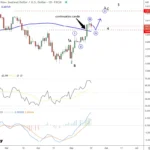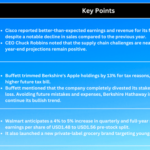
PM Theresa May Likely to Push for Single-Market Access in Brexit Deal
Discussions around the June 23 Brexit have anything but subsided. The UK faces a dilemma: How to maintain single-market access without remaining part of the European Union? Brexiteers are more concerned with the UK managing its borders than anything else, and this is what drove 52% of Britons to vote in favour of a Brexit. However, as fate may have it, Prime Minister Theresa May will invariably pay the EU for access to the single market. This may be at odds with the wishes of Eurosceptics and Brexiteers, but it allows Britain to maintain strict control over its borders and judiciary. As it stands, the UK is part and parcel of the EU. This means that all EU passport holders (permanent residents and citizens) have the right to live, work and travel freely in any EU country. This policy has resulted in ‘open borders’.
According to those in the know, Prime Minister May’s cabinet will be pushing for a trade deal that maintains unfettered access to a single European market by paying billions of pounds in fees. This would give the City of London access to critical sectors of the EU economy. Among the many major concerns for the UK is the loss of strategic partnerships with Europe. A Brexit signals a severing of existing tax-free, duty-free trade agreements with EU companies. The collective bargaining power of the EU will no longer be available to the UK, thereby raising prices. This would invariably lead to inflationary pressures in the UK economy, coupled with a weaker pound. The passporting rights that the UK currently enjoys would be lost in the absence of another deal. The UK is working feverishly to protect existing relationships with international companies. One such operator is Nissan – the Japanese carmaker.
According to the Office for National Statistics (ONS), the UK paid approximately £7.1 billion to the EU per annum, for the 5 years between 2010 and 2014. Additionally, the cost of separation from the EU will be approximately €20 billion for the UK. In order to maintain access to the single market, Britain will likely have to continue paying billions of euros in annual contributions. This will probably take the form of funding European projects or funding European Union security arrangements. The financial sector is determined to safeguard as many passporting rights as possible, and is leaning on the government to act accordingly. Failing the provision of such agreements, financial institutions have threatened to abandon the UK in favour of safer jurisdictions. There are simply too many UK jobs at stake for the government not to make payments to the EU to protect British industry and international business. But there is no consensus between Brexiteers and the remain campaign about the nature of the post-Brexit blueprint.















